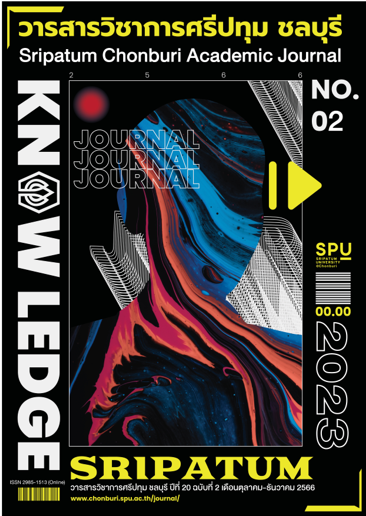ADMISSIBILITY OF EVIDENCE IN THE ACCUSATORIAL SYSTEM AND INQUISITORIAL SYSTEM
Keywords:
Admissibility of Evidence, Accusatorial System, Inquisitorial SystemAbstract
This academic article aims to study the principles of hearing evidence in the accusation system and the inquiry system in order to compare the different forms of the accusation system and the inquiry system of courts in Thailand and other countries for the purpose of improving the law. On the principles of hearing evidence in courts in Thailand, it is found that Regulations at the General Assembly of Judges of the Supreme Administrative Court on Administrative Court Procedures, 2000, Article 68, which are similar to the Civil Procedure Code and Criminal Procedure Code on the principles of listening to evidence, especially the flawed evidence which requires the court to listen with caution, the evidence should not be believed alone to convict the defendant unless there is a strong reason. There are special circumstances of the case or other supporting evidence. It is of the opinion that Article 68 of the Rules of the General Assembly of Judges of the Supreme Administrative Court does not correspond with Administrative Court Procedures B.E. because it is a system that gives the courts the power to hear evidence widely even if it is an investigation of evidence that has errors deviating from the procedure, method or time frame specified by law. Since the court plays an important role in finding out the truth beyond the outcome of the verdict, this principle is consistent with the judicial system under Section 27 of the Organic Act on the Procedures of the Constitutional Court.
From the study, it is suggested that Article 68 of the Rules of the General Assembly of Judges of the Supreme Administrative Court on Administrative Court Procedure, 2000 should be revised.
References
กุลพล พลวัน. (2546). การพิจารณาคดีระบบกล่าวหาและระบบไต่สวนในกฎหมายไทยที่มีผลกระทบต่อการคุ้มครองสิทธิมนุษยชน (ออนไลน์). เข้าถึงได้จาก:
http://elibrary.constitutionalcourt.or.th/multim/jindex/5-13/Image/5-13-34.pdf [2566, 26 มิถุนายน].
ประมวลกฎหมายวิธีพิจารณาความแพ่ง. (2478). ราชกิจจานุเบกษา. เล่ม 52, หน้า 723.
พระราชบัญญัติประกอบรัฐธรรมนูญว่าด้วยวิธีพิจารณาของศาลรัฐธรรมนูญ พ.ศ.2561. (2561). ราชกิจจานุเบกษา. เล่ม 135, ตอนที่ 12 ก, หน้า 13-14.
พระราชบัญญัติวิธีพิจารณาคดีทุจริตและประพฤติมิชอบ พ.ศ.2559. (2559). ราชกิจจานุเบกษา. เล่ม 133, ตอนที่ 86, หน้า 3.
มาร์ติน, เอ็ม ฟิลลิป. (2544). ระบบวิธีพจารณาคดีปกครองของประเทศฝรั่งเศส. วารสารวิชาการศาลปกครอง, 1(3), หน้า 1-36.
วรเจตน์ ภาคีรัตน์. (2545). หลักเกณฑ์สำคัญเกี่ยวกับวิธีพิจารณาคดีรัฐธรรมนูญในสหพันธ์สาธารณรัฐเยอรมัน. วารสารศาลรัฐธรรมนูญ, 4(12), หน้า 28-72.
ศาลปกครอง. (2556). กระบวนการพิจารณาแบบไต่สวน (ออนไลน์). เข้าถึงได้จาก:
https://www.admincourt.go.th/admincourt/site/02judicial.html?page=02judicial_750 [2565, 26 มิถุนายน].
สำนักงานศาลรัฐธรรมนูญ. (2551). กฎหมายพื้นฐาน (Basic Law) สหพันธ์สาธารณรัฐเยอรมนี. กรุงเทพฯ: พี.เพรส.
Downloads
Published
Issue
Section
License
Copyright (c) 2023 Sripatum Chonburi Academic Journal

This work is licensed under a Creative Commons Attribution-NonCommercial-NoDerivatives 4.0 International License.
บทความทุกบทความเป็นลิขสิทธิ์ของวารสารวิชาการศรีปทุม ชลบุรี



